Talk to any critic and you’ll hear about a book you must read—often one you were begged to read by some reviewer when it came out, but which quickly slipped off your radar. Such is the plight of critics. Which is why we decided, with the help of the National Book Critics Circle, to ask professional critics (and some other writers) to pick the best under-the-radar book of the past ten years or so. We sought out novels, but a few memoirs popped up. And though we’d never have presumed to forecast the results, we did expect some consensus and certainly one clear winner—a buried genius everyone agreed was primed for a Roberto Bolaño–style resurrection. We were delightfully foiled. These picks were idiosyncratic, contentious (that writer’s underrated? Really?), with no two alike. Until one novelist surged ahead to victory—garnering a whopping two votes.
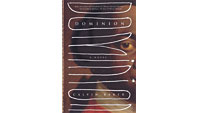
DOMINION
By Calvin Baker
Less jaded than Colson Whitehead, less kitschy than Toni Morrison, Calvin Baker is my favorite contemporary African-American novelist, and Dominion is his best book yet.
—Dale Peck
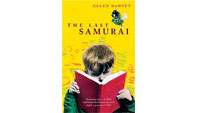
THE LAST SAMURAI
By Helen Dewitt
For its playful, steady, angst-attuned intelligence and its utter conceptual exceptionality.
—Sven Birkerts
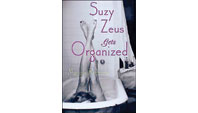
SUZY ZEUS GETS ORGANIZED
By Maggie Robbins
A sweet-and-sour novel in verse that very flatteringly assumes the reader is as witty as the writer.
— Craig Seligman, Bloomberg News
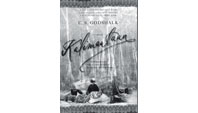
KALIMANTAAN
By C.S. Godshalk
A novel about a self-appointed British raja on the island of Borneo, this book changed the way I thought about imperialism, just as Pat Barker’s trilogy changed the way I thought about the First World War.
—Alice Truax
Copies sold of David Markson’s last two novels before his new one, according to BookScan: 6,000
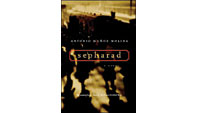
SEPHARAD
By Antonio Muñoz Molina
A true masterpiece of late-twentieth-century fiction, wrestling with the five centuries of Continental trauma from the Inquisition to the Holocaust in a way that is truly novel (in every sense of that word).
—Daniel Mendelsohn
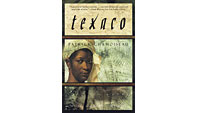
TEXACO
By Patrick Chamoiseau
An epic story that takes in everything from New World slavery to the aftermath of industrialization, fusing the oral traditions of his native Martinique with experimental writing.
—Jean Stein
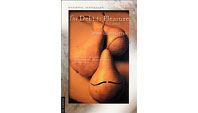
THE DEBT TO PLEASURE
By John Lanchester
Pure wicked literary pleasure. Well received when published, but not nearly as well read as deserved. Ghostly progenitor: Nabokov’s Pale Fire.
—Ron Rosenbaum
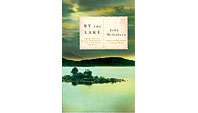
THE LAKE
By John McGahern
A beautiful, hymnlike epilogue to the life’s work of this Irish master; it should be beloved by everyone who cares about life and literature.
—Andrew O’Hagan
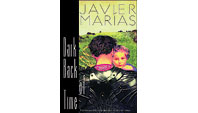
DARK BACK OF TIME
By Javier Marías
A fascinating sample of his unique mixture of myth, autobiography, and satire.
—Elaine Showalter
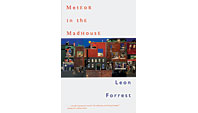
METEOR IN THE MADHOUSE
By Leon Forrest
The posthumous volume of the most overlooked author of the last 30 years. He comments on what must be repressed to conceive history (and genealogy) along racial lines.
—Milton Welch
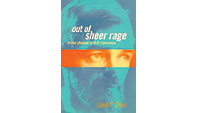
OUT OF SHEER RAGE
By Geoff Dyer
The best book about writer’s block someone actually managed to finish writing.
—Marco Roth, n+1
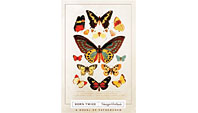
BORN TWICE
By Giuseppe Pontiggia
This great [Italian] novel of fatherhood has been woefully underread in the U.S., perhaps because Pontiggia died soon after its publication here.
—Janice Harayda, One-Minute Book Reviews
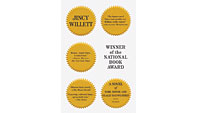
WINNER OF THE NATIONAL BOOK AWARD
By Jincy Willett
Beautifully written, seriously intended, very funny books with believable characters are extremely rare, and this is one of those rarities.
—Kurt Andersen
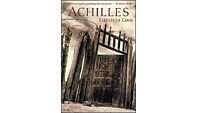
ACHILLES
By Elizabeth Cook
This is a meditative, intense retelling of the life of Homer’s hero, remarkable for its lush artfulness and the subtle intelligence of its prose.
—Meghan O’Rourke, literary editor of Slate
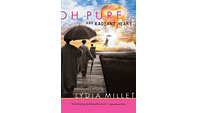
OH PURE AND RADIANT HEART
By Lydia Millet
Largely unsung. Not only did I love reading it (until the very end), but I also found the title resoundingly beautiful.
—Helen Schulman
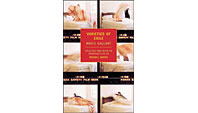
VARIETIES OF EXILE
By Mavis Gallant
Canadian expats look lovingly home in this collection by Mavis Gallant, a kind of Alice Munro for those who got out.
—Chris Beha, Bookforum
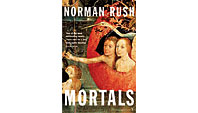
MORTALS
By Norman Rush
Rush’s second best book (after Mating) is better than almost anyone else’s best book.
—Benjamin Kunkel
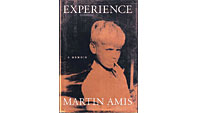
EXPERIENCE
By Martin Amis
The cleverest and funniest and most moving memoir I’ve ever read, and each time I reread it I’m simply drunk with pleasure.
—Jim Holt
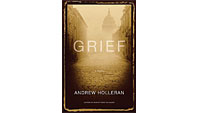
GRIEF
By Andrew Holleran
This slim but singularly affecting novel put in an appearance to conditional praise last June and, to my knowledge, sank thereafter without a trace. A meditation on personal loss and the loss of erotic/romantic possibilities for aging homosexual men (and by implication aging everyones) it’s bone-spare but plangent with meaning—the kind of novel that would be immediately hailed if it were written by a laconic European writer.
—Daphne Merkin
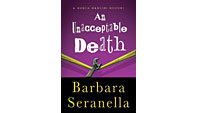
THE MUNCH MANCINI MYSTERY SERIES
By Barbara Seranella
Although her books are gritty and tough, Seranella wrote with a humanity and dry wit that transcended the genre.
—Mia Geiger
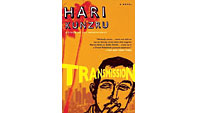
TRANSMISSION
By Hari Kunzru
Sleek and jangly, cerebral and humane—a novel about a young Indian software geek and the computer virus that swamps both Bollywood and Silicon Valley.
—Dwight Garner, Times Book Review
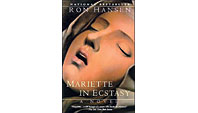
MARIETTE IN ECSTASY
By Ron Hansen
A perfect book. So compelling, and curious, and beautifully written, it reads like a prayer.
—Elissa Schappell
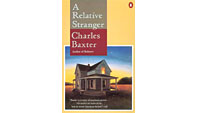
A RELATIVE STRANGER
By Charles Baxter
His mastery of forms of prose fiction and the embodiment in his work of virtually every aspect of the America that we live in are unparalleled.
—Lawrence Joseph, The Nation
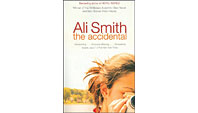
THE ACCIDENTAL
By Ali Smith
A brilliantly clever but sympathetic novel, told from different viewpoints, which deconstructs a family through the device of a mysterious visitor.
—Lindsay Duguid, TLS
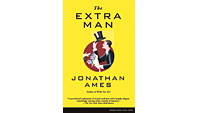
THE EXTRA MAN
By Jonathan Ames
An unholy combination of P. G. Wodehouse, Evelyn Waugh, sexual perversion, and lifestyle tips. Needless to say, wickedly funny.
—Michael Agger, Slate
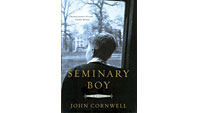
SEMINARY BOY
By John Cornwell
Mostly seen in America as a memoir of sexual abuse, this is an exact and compelling re-creation of the whole lost Catholic world that began to dissolve at Vatican II.
—Anthony Grafton
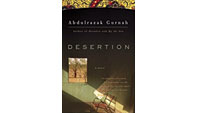
DESERTION
By Abdulrazak Gurnah
A searing tale of disastrous colonial encounters. I’ve always been mystified as to why Zanzibar-born Gurnah is not as known in the U.S. as he is in the U.K.
—Laila Lalami, L.A. Times
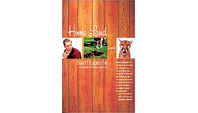
HOME LAND
By Sam Lipsyte
Yes, it got some terse praise, yes, it’s become sort of a cult favorite, but by God, Lipsyte ought to be a household name in this country. —Gideon Lewis-Kraus, Harper’s
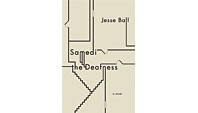
SAMEDI THE DEAFNESS
By Jesse Ball
Graham Greene’s feel for a plot twist—stuck in a superglued handshake with Gogol’s dark wit.
—Helen Oyeyemi
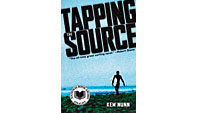
TAPPING THE SOURCE
By Kem Nunn
Dark, mysterious, and tightly plotted, with a starkly written prose reminiscent of Cormac McCarthy.
—Michael Leone, Cleveland Plain Dealer
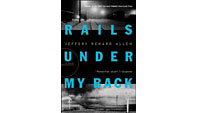
RAILS UNDER MY BACK
By Jeffery Renard Allen
A huge, muscular, sweat-drenched epic about the fall-out of migration within the African-American community in Chicago and New York.
—John Freeman
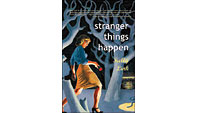
STRANGER THINGS HAPPEN
By Kelly Link
A book that could be shelved under several genres—horror, fantasy, literary fiction—it suffers from the limited ways in which we think about literature.
—David Orr, Times Book Review
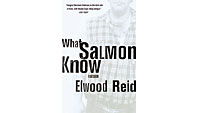
WHAT SALMON KNOW
By Elwood Reid
Short stories that keep the form’s most solemn promises.
—Walter Kirn
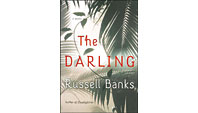
THE DARLING
By Russell Banks
This riveting tale of a sixties revolutionary exiled in Liberia is one of the best political novels I’ve read in years.
—Adam Shatz, literary editor of The Nation
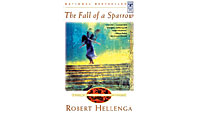
THE FALL OF A SPARROW
By Robert Hellenga
It didn’t get the love lavished on Hellenga’s first novel, The Sixteen Pleasures, but to my mind it’s an even richer, profounder book. The Fall of a Sparrow raises all the old deep questions about cosmic justice and the lack thereof, but also has much to say about Oriental carpets, Delta blues, Parmesan cheese, Latin poetry, and finding a new life when your old one has exploded.
—Katha Pollitt
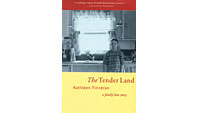
THE TENDER LAND: A FAMILY LOVE STORY
By Kathleen Finneran
She received the Whiting Award for this symphonic memoir. But she hardly got any attention for it. —Marcela Valdes, Washington Post
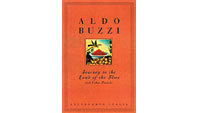
JOURNEY TO THE LAND OF FLIES AND OTHER TRAVELS
By Aldo Buzzi
For its eccentric and humorous erudition.
—Ian Buruma
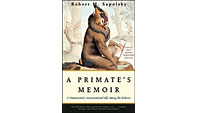
A PRIMATE’S MEMOIR: A NEUROSCIENTIST’S UNCONVENTIONAL LIFE AMONG THE BABOONS
by Robert M. Sapolsky
Intelligent and compassionate. This book gives us an alternative view of ourselves.
—Azar Nafisi
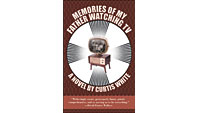
MEMORIES OF MY FATHER WATCHING TV
By Curtis White
Fit to stand with White Noise as a book about the great national pastime.
—Keith Gessen, n+1
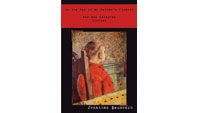
ON THE WAY TO MY FATHER’S FUNERAL
By Jonathan Baumbach
He came of age with more widely known writers like Donald Barthelme and Robert Coover. It’s a terrible mistake that his name isn’t often mentioned along with theirs.
—Michael Cunningham
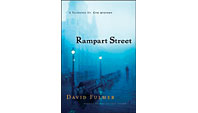
RAMPART STREET
By David Fulmer
Layers a major knowledge of jazz music, the historical setting of early New Orleans, and a troubled French-Creole investigator into mystery novels with a distinct and fascinating tone.
—Jules Brenner, Critical Mystery Tour
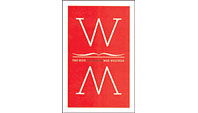
THE WIFE
By Meg Wolitzer
Funnier than Roth, Bellow, Amis— all of whom Wolitzer satirizes in this brilliant, hilarious novel.
—Ruth Davis Konigsberg, the New York Observer
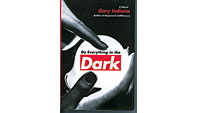
DO EVERYTHING IN THE DARK
By Gary Indiana
With scrupulously intense sentences—pitch-perfect, pitch-dark—Indiana conjures a hugely sad New York novel that feels at once state-of-the-art and stunningly ancient.
—Ed Park, The Believer
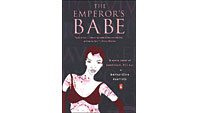
THE EMPEROR’S BABE
By Bernardine Evaristo
A daring and thoughtful exercise in sustained anachronism—about “the It Girl of Londinium,” a teenager of Sudanese extraction living in London in 221 A.D. who is the trophy wife of a grotesque senator.
—Leo Carey, The New Yorker
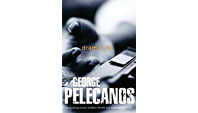
DRAMA CITY
By George Pelecanos
Few authors can write about race and the urban landscape with his nuance and insight—and nobody else can do it while telling such a damn good story.
—David Montgomery, Chicago Sun-Times
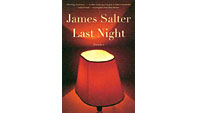
LAST NIGHT
By James Salter
Should have been a best seller, and over its long lifetime probably will be. So why not now?
—Jason Epstein
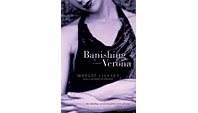
BANISHING VERONA
By Margot Livesey
Scary, funny plots, some of the creepiest villains in recent memory, and language both gorgeous and tart.
—Erin McGraw, Raleigh News & Observer
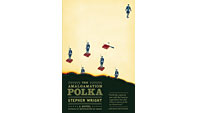
THE AMALGAMATION POLKA
By Stephen Wright
Fully American and fully literary as few are, he is a writer’s writer—but also a reader’s writer who deserves a wider audience.
—Deidra McAfee, Richmond Times-Dispatch
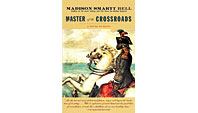
MASTER OF THE CROSSROADS
By Madison Smartt Bell
An achievement unparalleled in American letters since the time of Dos Passos. Disturbing in many parts, it is also a hell of a fun read.
—David Hellman
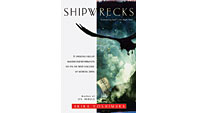
SHIPWRECKS
By Akira Yoshimura
Something like Rashomon-by-the-sea: a wicked, creepy short novel set in medieval Japan by a contemporary master little known in the States.
—Nathaniel Rich, The Paris Review
Writers of the top three best sellers ten years ago this week: Mary Higgins Clark, John Grisham, and Danielle Steel
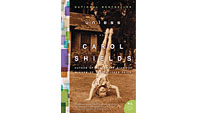
UNLESS
By Carol Shields
Shields’s name has faded from view. Now that she is dead, her work should be vigorously kept in the literary public eye.
—Abby Frucht, Chicago Tribune
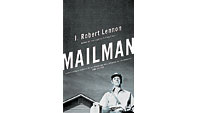
MAILMAN
By J. Robert Lennon
An extraordinary story about the disintegration of a postal worker with faded dreams of glory as a physicist. He leaves his own special postmark.
—Steven G. Kellman, Georgia Review
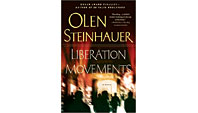
THE CONFESSION; LIBERATION MOVEMENTS
By Olen Steinhauer
Amazing crime novels set in Eastern Europe that feature a group of detectives and spies in the ironically named People’s Militia.
—Paula L. Woods, Washington Post
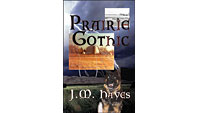
PRAIRIE GOTHIC
By J.M. Hayes
It’s no easy trick to write about America with a clear eye for its faults and with warm humor. Mark Twain managed it, and so does J. M. Hayes, with admirable wit in the face of horror.
—John Orr, San Jose Mercury News
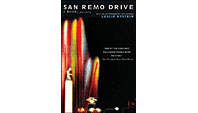
SAN REMO DRIVE
By Leslie Epstein
A troubled post–World War II Hollywood childhood intersects with the blacklist in this haunting novel by the son and nephew of the brothers who wrote Casablanca.
—Frank Rich
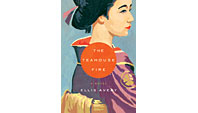
THE TEAHOUSE FIRE
By Ellis Avery
A nearly visceral nineteenth-century Kyoto. Told via an observant narrator who has a steamy girl-on-girl tryst that changes her life.
—Karen Schechner, Lambda Book Report
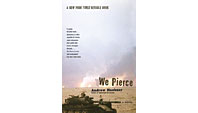
WE PIERCE
By Andrew Huebner
He writes the way men used to write, bashing away until he renders the horrific beautiful.
—William Georgiades, New York Post
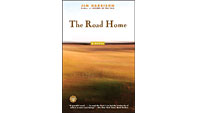
THE ROAD HOME
By Jim Harrison
Harrison’s most mature work, expressing wonder at human behavior while displaying both understanding and gracious good humor.
—Jeffrey Trachtenberg, The Wall Street Journal
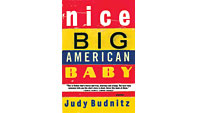
NICE BIG AMERICAN BABY
By Judy Budnitz
Gorgeously written, bafflingly odd tales that you don’t read as much as absorb. These are fairy tales for our dark times, and they enchant even as they disturb.
—Carole Goldberg, Hartford Courant
And the Winner Is….
David Markson,
for The Last Novel and Vanishing Point
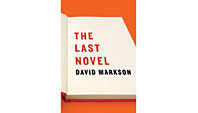
David Markson, who has long been a writer other writers go gaga over, got more votes than any other novelist (that would be two—and not even for the same novel). As Sarah Weinman of Galley Cat notes, in singling out his just-released novel, The Last Novel, “Markson writes both in a postmodern fashion, all but the barest of phrases stripped away, and in a widely expansive method to reveal a greater sum of the world around him and all of us.” Wayne Koestenbaum highlighted an earlier book by Markson, Vanishing Point: “It’s a novel, yes, but it barely qualifies—it’s simply a list of outrageously pathetic facts about artists and writers. It’s funny, sad, bravura, minimalist. I adore his work.”
• IN TRANSLATION
• ORIGINAL ENGLISH
• MEMOIR